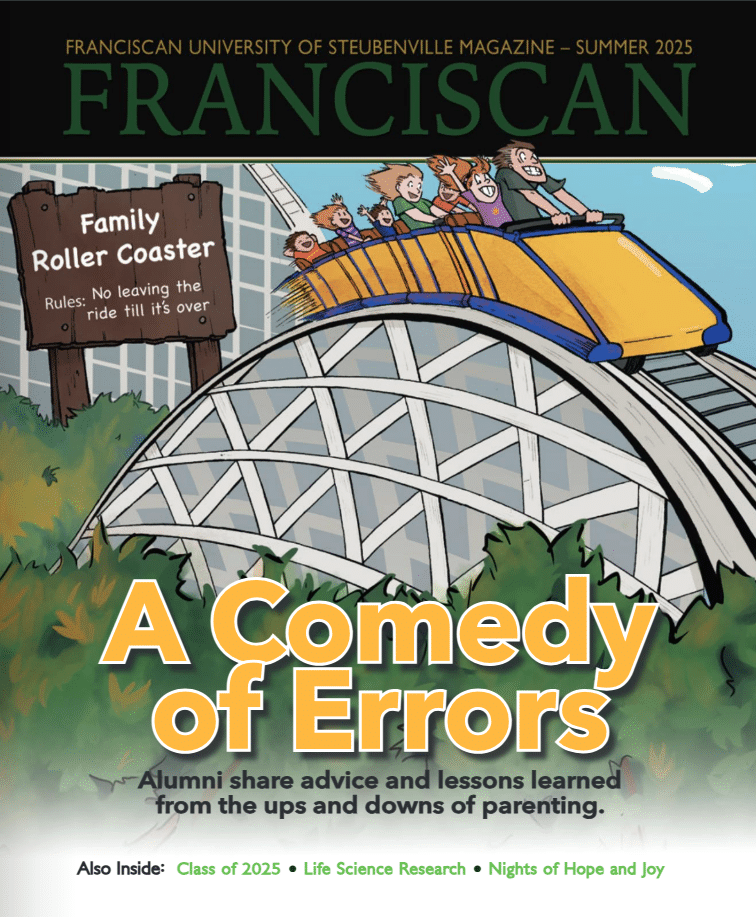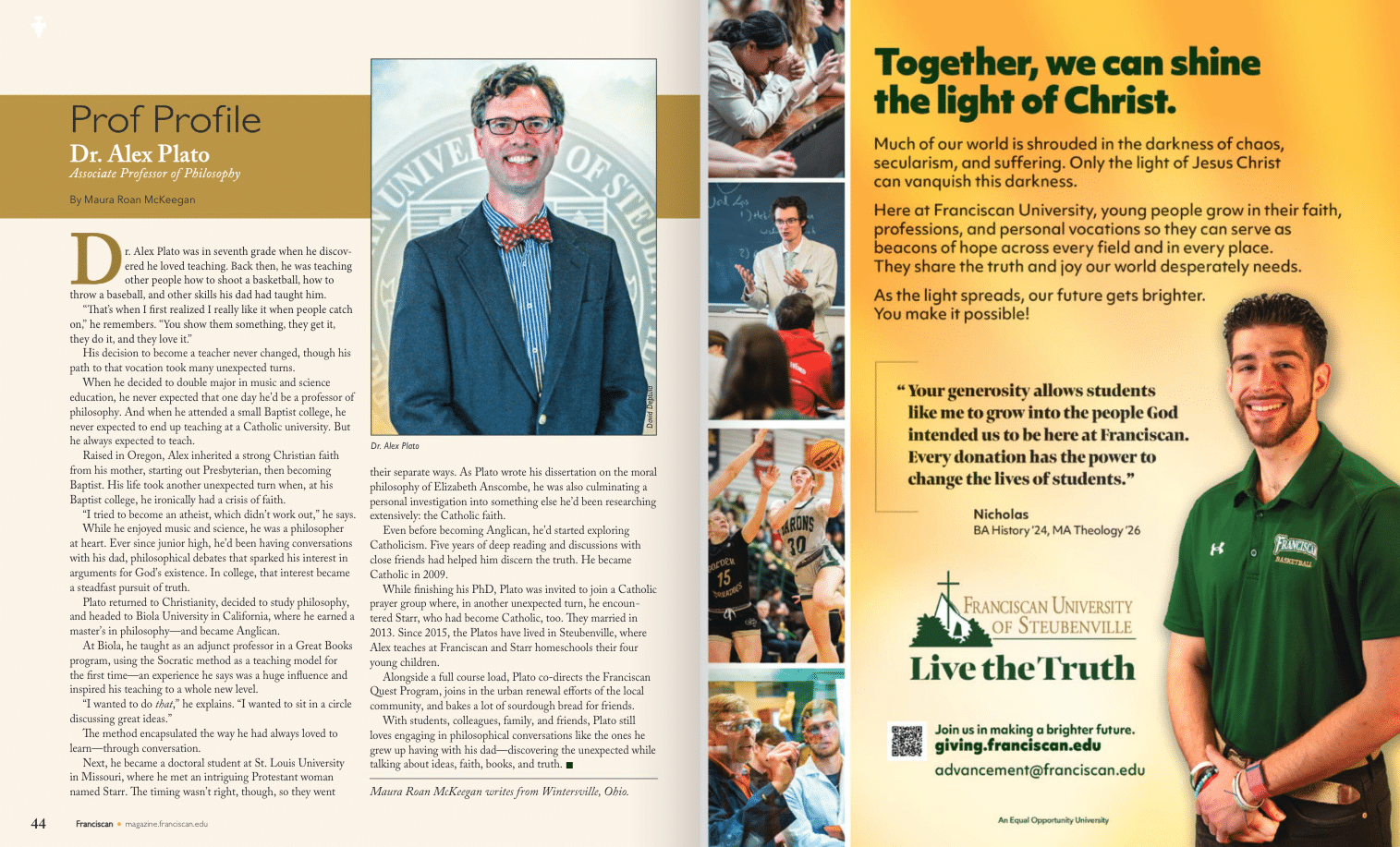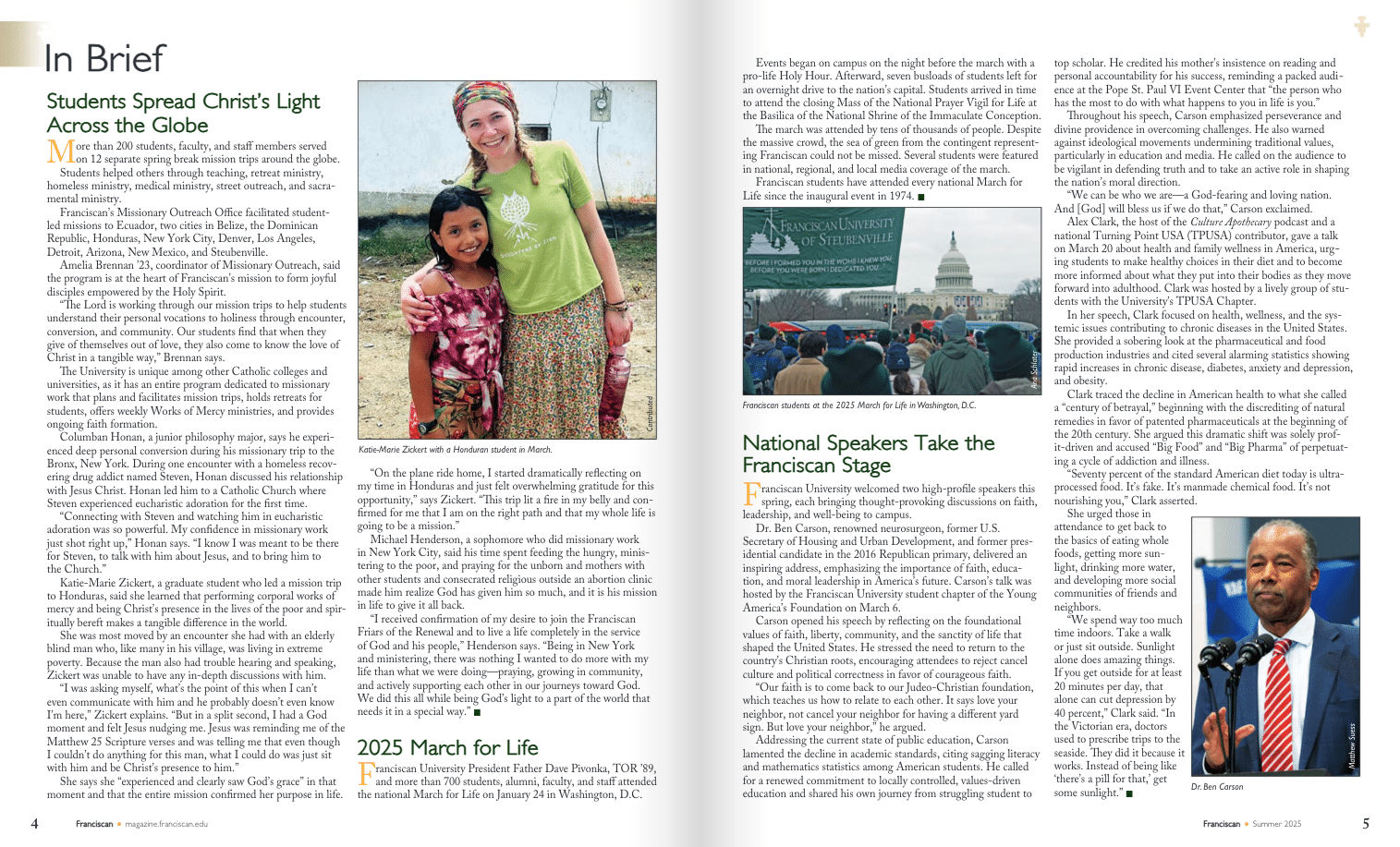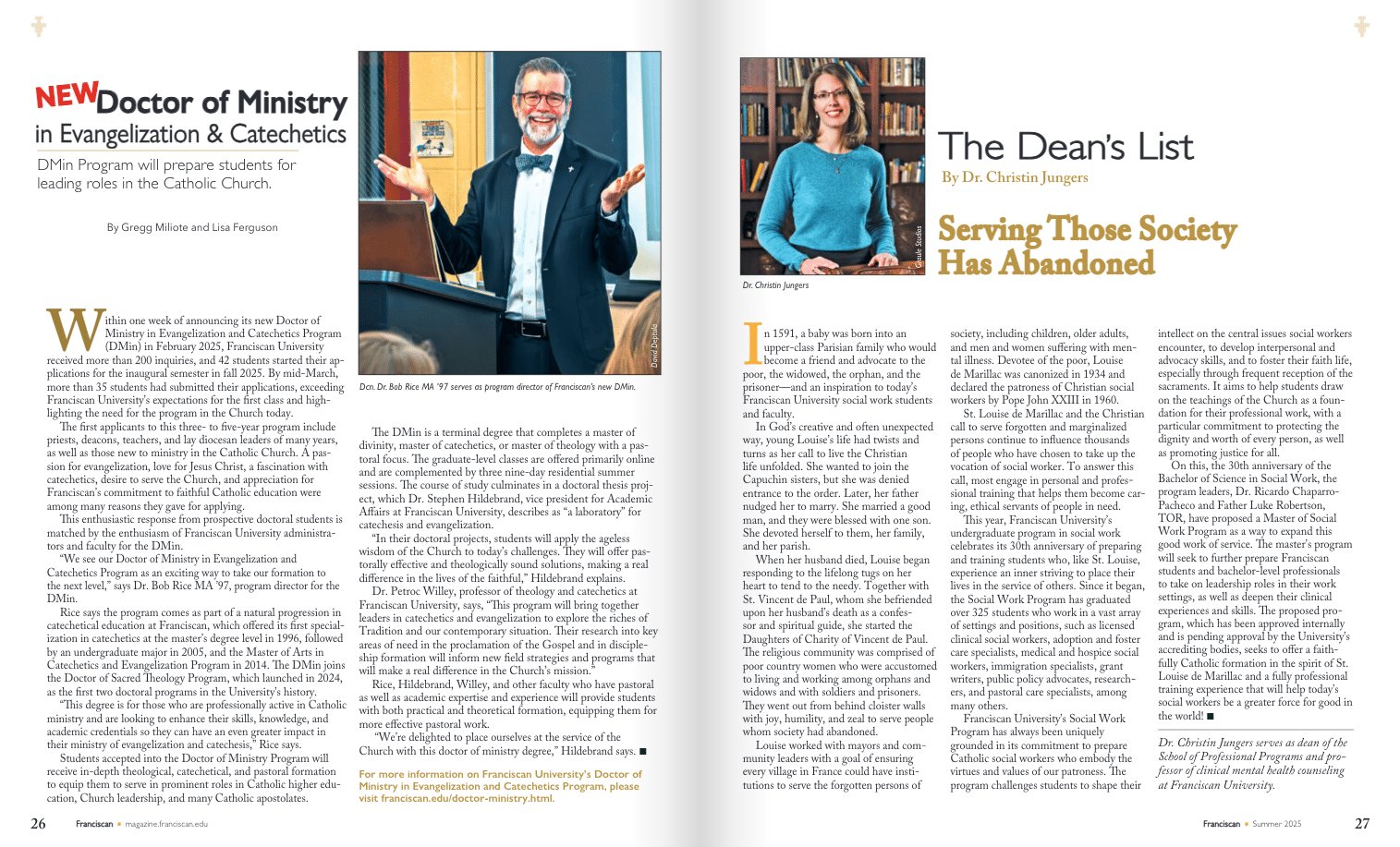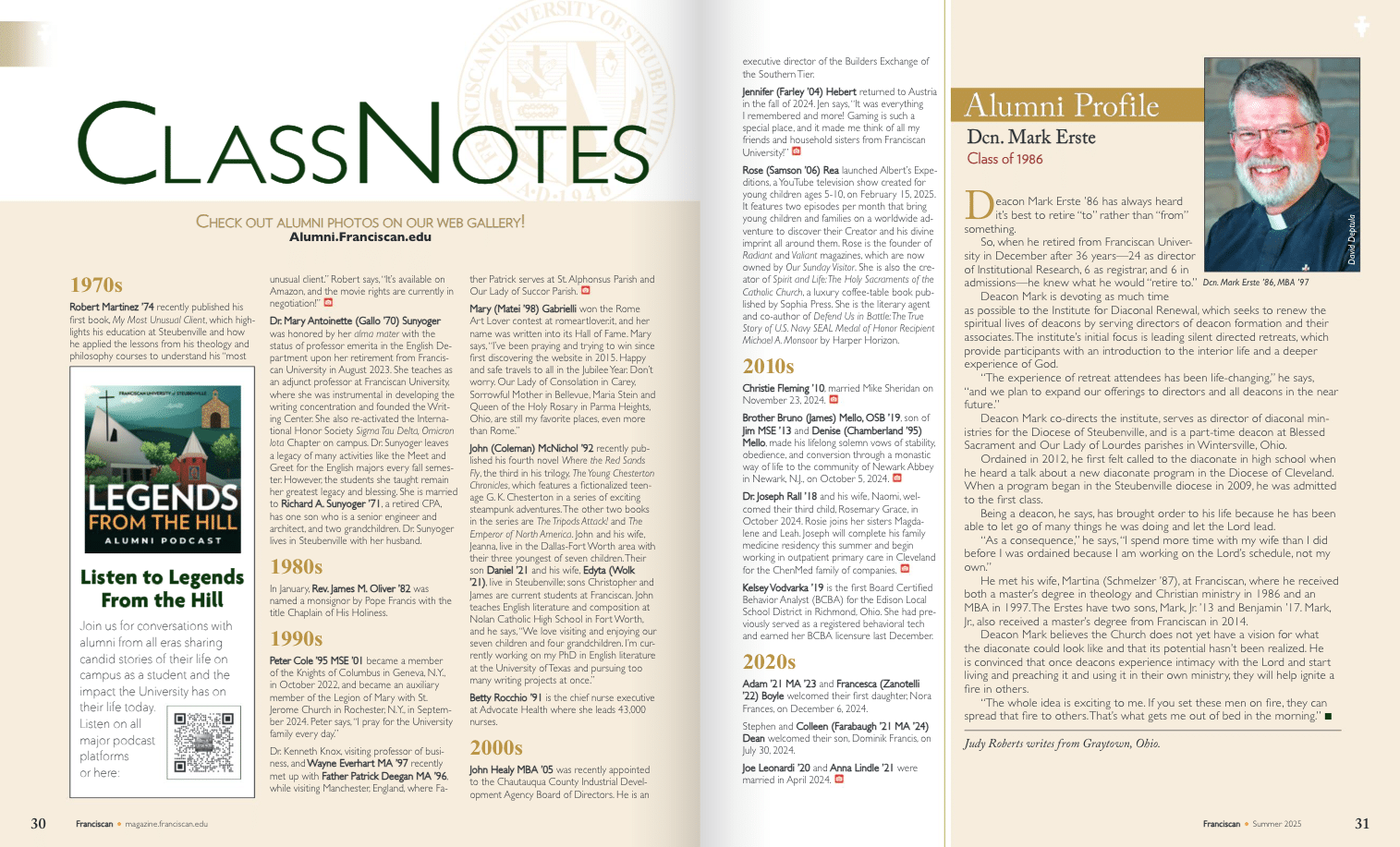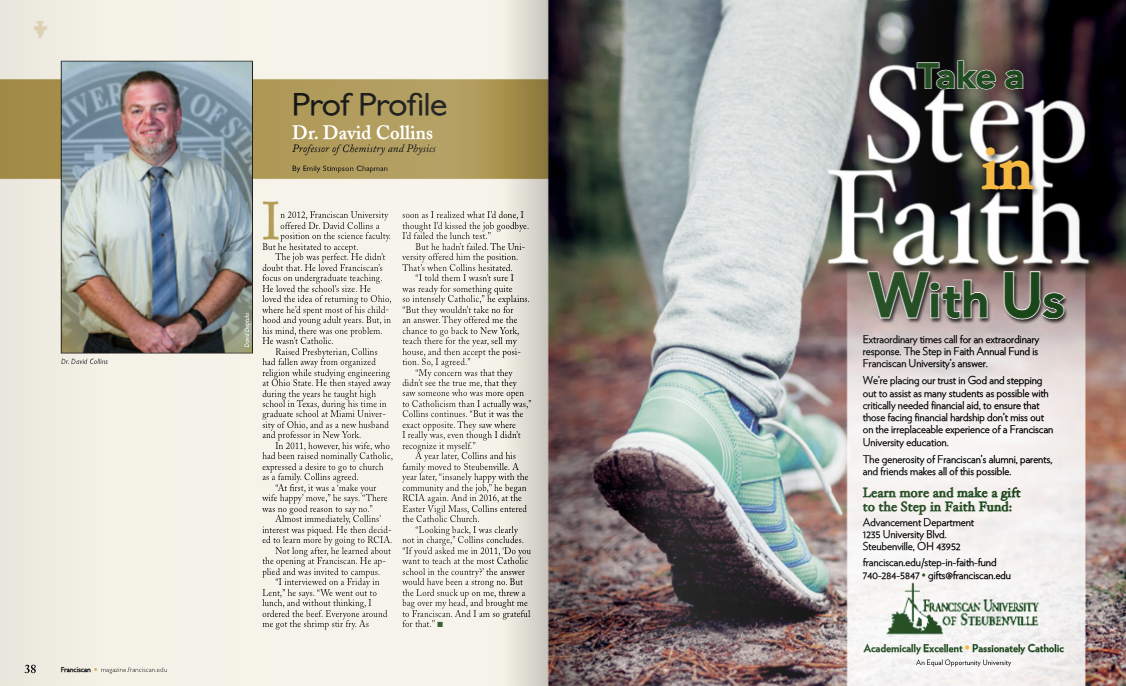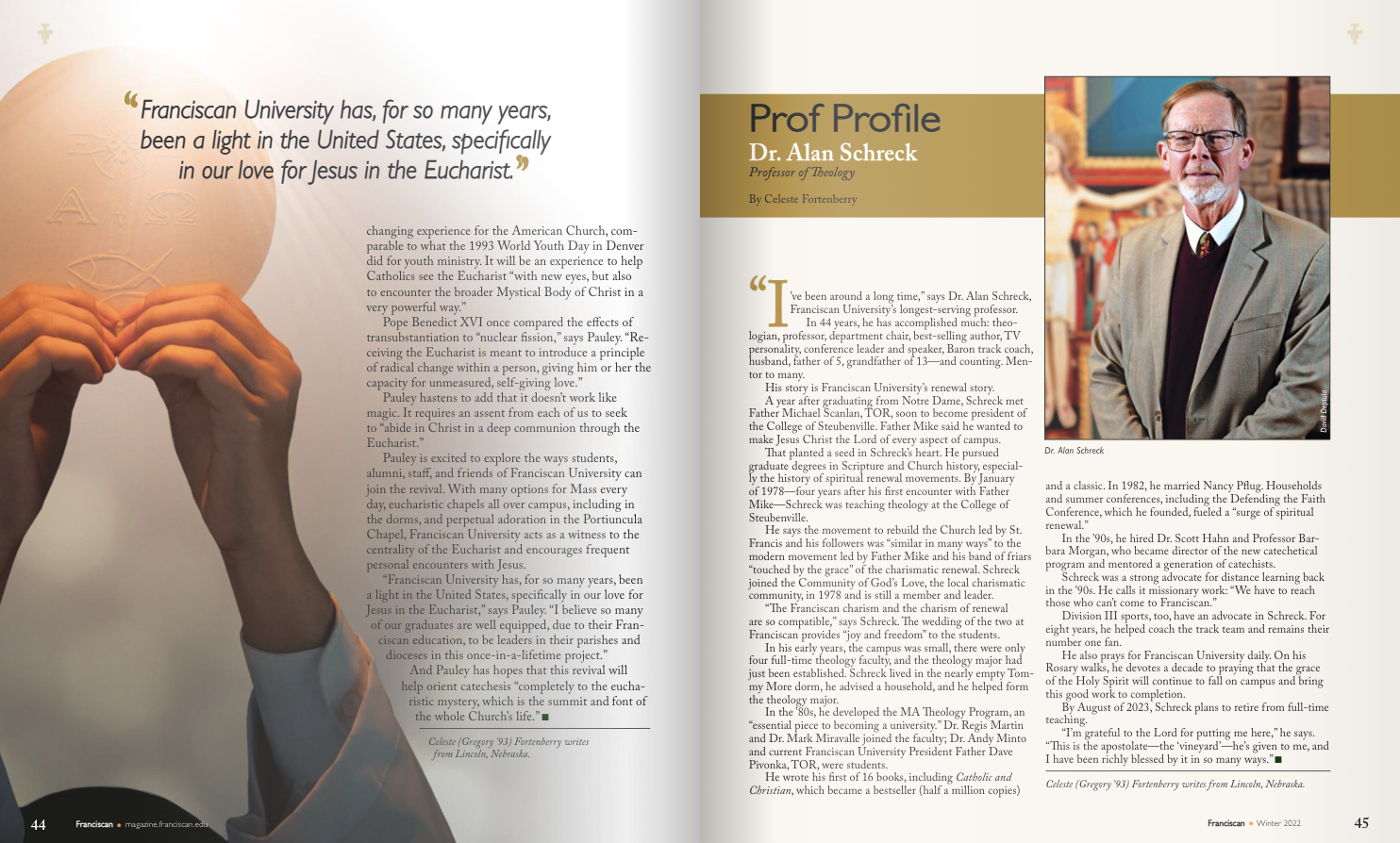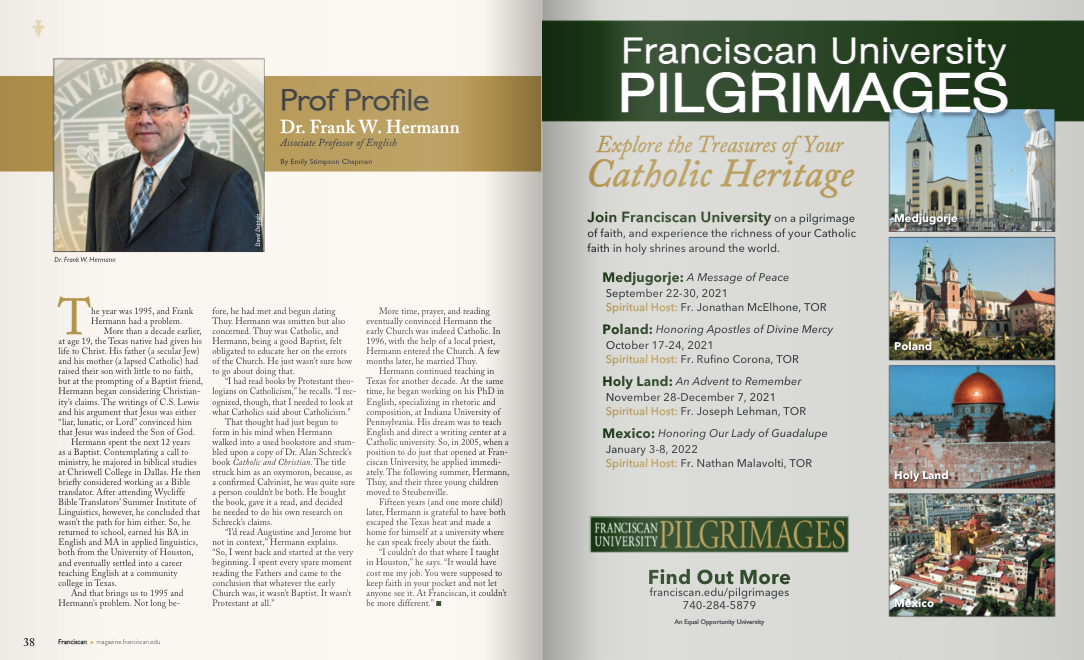Dr. Alex Plato
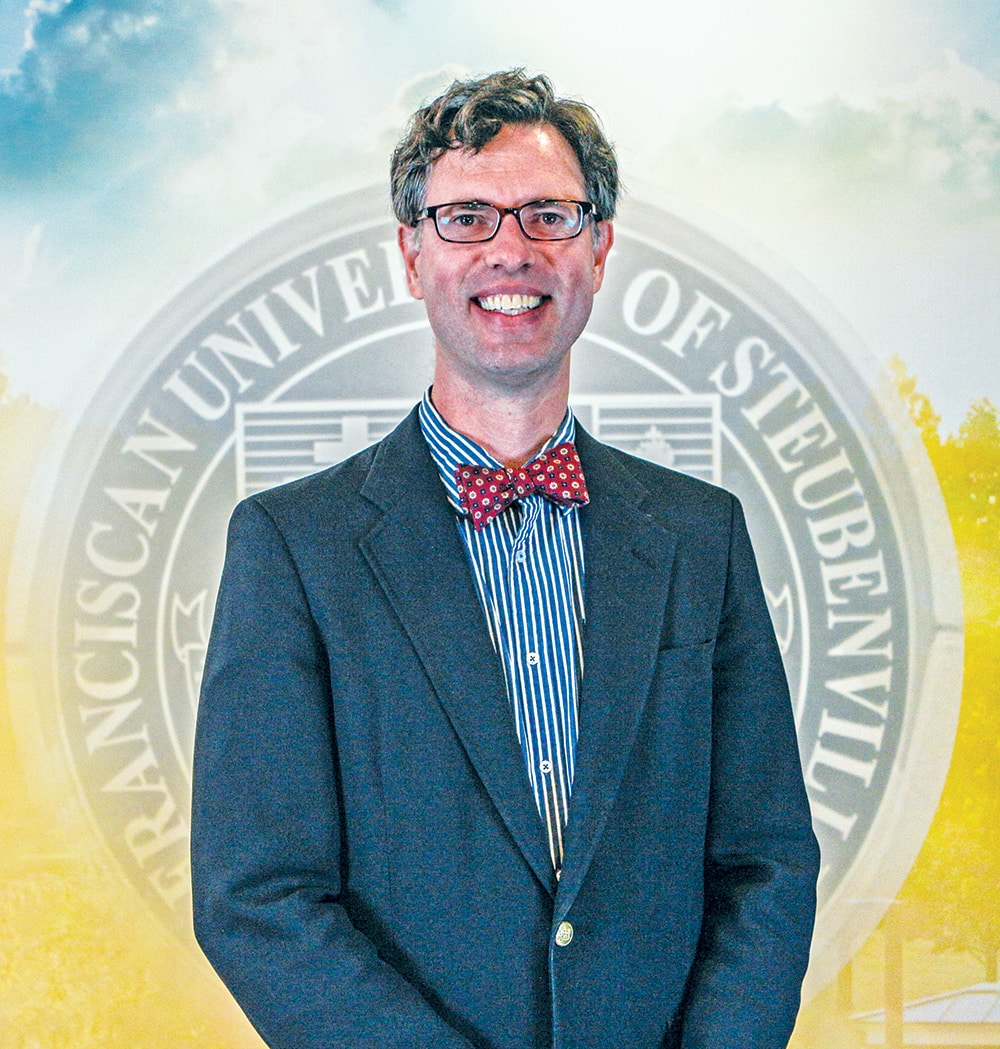
Dr. Alex Plato
Dr. Alex Plato, philosophy professor, shares his journey to the Catholic faith.
Summer 2025 | Maura Roan McKeegan
Dr. Alex Plato was in seventh grade when he discovered he loved teaching. Back then, he was teaching other people how to shoot a basketball, how to throw a baseball, and other skills his dad had taught him.
“That’s when I first realized I really like it when people catch on,” he remembers. “You show them something, they get it, they do it, and they love it.”
His decision to become a teacher never changed, though his path to that vocation took many unexpected turns.
When he decided to double major in music and science education, he never expected that one day he’d be a professor of philosophy. And when he attended a small Baptist college, he never expected to end up teaching at a Catholic university. But he always expected to teach.
Raised in Oregon, Alex inherited a strong Christian faith from his mother, starting out Presbyterian, then becoming Baptist. His life took another unexpected turn when, at his Baptist college, he ironically had a crisis of faith.
“I tried to become an atheist, which didn’t work out,” he says. While he enjoyed music and science, he was a philosopher at heart. Ever since junior high, he’d been having conversations with his dad, philosophical debates that sparked his interest in arguments for God’s existence. In college, that interest became a steadfast pursuit of truth.
Plato returned to Christianity, decided to study philosophy, and headed to Biola University in California, where he earned a master’s in philosophy—and became Anglican.
At Biola, he taught as an adjunct professor in a Great Books program, using the Socratic method as a teaching model for the first time—an experience he says was a huge influence and inspired his teaching to a whole new level.
“I wanted to do that,” he explains. “I wanted to sit in a circle discussing great ideas.”
The method encapsulated the way he had always loved to learn—through conversation.
Next, he became a doctoral student at St. Louis University in Missouri, where he met an intriguing Protestant woman named Starr. The timing wasn’t right, though, so they went their separate ways. As Plato wrote his dissertation on the moral philosophy of Elizabeth Anscombe, he was also culminating a personal investigation into something else he’d been researching extensively: the Catholic faith.
Even before becoming Anglican, he’d started exploring Catholicism. Five years of deep reading and discussions with close friends had helped him discern the truth. He became Catholic in 2009.
While finishing his PhD, Plato was invited to join a Catholic prayer group where, in another unexpected turn, he encountered Starr, who had become Catholic, too. They married in 2013. Since 2015, the Platos have lived in Steubenville, where Alex teaches at Franciscan and Starr homeschools their four young children.
Alongside a full course load, Plato co-directs the Franciscan Quest Program, joins in the urban renewal efforts of the local community, and bakes a lot of sourdough bread for friends. With students, colleagues, family, and friends, Plato still loves engaging in philosophical conversations like the ones he grew up having with his dad—discovering the unexpected while talking about ideas, faith, books, and truth.



